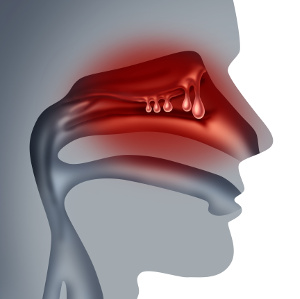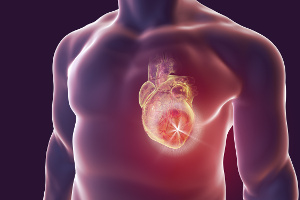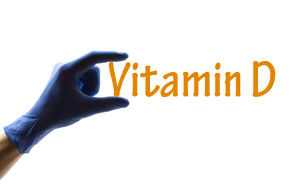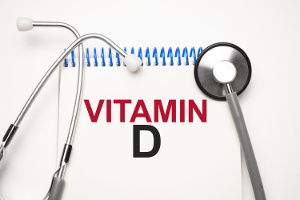| 1 x afterRenderRawModule mod_tags_popular (Search) (25.44KB) (33.75%) | 119.38ms |
| 1 x afterRenderComponent com_content (1.31MB) (22.26%) | 78.75ms |
| 1 x afterRenderRawModule mod_articles_category (READ MORE...) (68.63KB) (13.68%) | 48.37ms |
| 1 x afterInitialise (1.27MB) (5.59%) | 19.77ms |
| 1 x afterRender (359.66KB) (5.22%) | 18.45ms |
| 1 x beforeRenderRawModule mod_custom (Chronic fatigue tied Alan to his bed but Q10 capsules saved him:) (259.35KB) (3.19%) | 11.29ms |
| 1 x beforeRenderRawModule mod_articles_category (READ MORE...) (435.26KB) (1.82%) | 6.42ms |
| 1 x afterRoute (826.8KB) (1.76%) | 6.21ms |
| 1 x afterRenderRawModule mod_languages (Sprogskift) (22.54KB) (1.44%) | 5.11ms |
| 1 x afterRenderRawModule mod_finder () (64.6KB) (1.44%) | 5.09ms |
| 1 x afterRenderRawModule mod_menu (Main Menu - English) (191.2KB) (1.16%) | 4.09ms |
| 1 x afterLoad (456.27KB) (0.71%) | 2.51ms |
| 1 x afterRenderRawModule mod_finder () (6.29KB) (0.71%) | 2.50ms |
| 1 x afterRenderRawModule mod_menu (Did you know.....) (25.52KB) (0.66%) | 2.35ms |
| 1 x beforeRenderRawModule mod_custom () (6.62KB) (0.65%) | 2.29ms |
| 1 x afterDispatch (17.3KB) (0.62%) | 2.19ms |
| 1 x afterRenderRawModule mod_menu (Are you getting enough vitamins and minerals?) (23.02KB) (0.55%) | 1.95ms |
| 1 x beforeRenderRawModule mod_menu (Main Menu - English) (29.14KB) (0.54%) | 1.90ms |
| 1 x afterRenderRawModule mod_languages (Sprogskift Mobil) (3.89KB) (0.53%) | 1.86ms |
| 1 x afterRenderRawModule mod_custom () (26.52KB) (0.4%) | 1.43ms |
| 1 x Before Access::preloadComponents (all components) (66.03KB) (0.32%) | 1.12ms |
| 1 x afterRenderRawModule mod_menu (Main Menu - English) (6.3KB) (0.28%) | 985μs |
| 1 x After Access::preloadComponents (all components) (98.44KB) (0.27%) | 948μs |
| 1 x beforeRenderRawModule mod_custom () (688B) (0.22%) | 771μs |
| 1 x beforeRenderComponent com_content (34.95KB) (0.18%) | 632μs |
| 1 x beforeRenderModule mod_articles_category (READ MORE...) (20.82KB) (0.14%) | 507μs |
| 1 x afterRenderRawModule mod_menu (The key to increased well-being) (17.83KB) (0.12%) | 421μs |
| 1 x afterRenderRawModule mod_custom (BOOST YOUR IMMUNE DEFENSE) (3.8KB) (0.08%) | 274μs |
| 1 x beforeRenderRawModule mod_custom () (8.66KB) (0.07%) | 230μs |
| 1 x afterRenderRawModule mod_custom () (896B) (0.06%) | 227μs |
| 1 x afterRenderRawModule mod_custom () (904B) (0.05%) | 187μs |
| 1 x beforeRenderRawModule mod_menu (Main Menu - English) (5.07KB) (0.04%) | 139μs |
| 1 x afterRenderModule mod_menu (Main Menu - English) (4.86KB) (0.03%) | 89μs |
| 1 x After Access::getAssetRules (id:8 name:com_content) (7.05KB) (0.02%) | 86μs |
| 1 x afterRenderRawModule mod_custom (Get additionel and more detailed knowledge ) (1.53KB) (0.02%) | 71μs |
| 1 x beforeRenderRawModule mod_custom (Get additionel and more detailed knowledge ) (816B) (0.02%) | 68μs |
| 1 x afterRenderModule mod_custom (Chronic fatigue tied Alan to his bed but Q10 capsules saved him:) (1.3KB) (0.02%) | 68μs |
| 1 x afterRenderModule mod_custom () (1.23KB) (0.02%) | 64μs |
| 1 x afterRenderModule mod_finder () (1.23KB) (0.02%) | 61μs |
| 1 x afterRenderRawModule mod_custom (Chronic fatigue tied Alan to his bed but Q10 capsules saved him:) (1.06KB) (0.02%) | 59μs |
| 1 x afterRenderRawModule mod_custom (Useful Links) (1.02KB) (0.02%) | 57μs |
| 1 x afterRenderModule mod_menu (Main Menu - English) (1.25KB) (0.02%) | 54μs |
| 1 x afterRenderModule mod_finder () (3.29KB) (0.01%) | 44μs |
| 1 x afterRenderModule mod_articles_category (READ MORE...) (1.25KB) (0.01%) | 42μs |
| 1 x afterRenderModule mod_languages (Sprogskift Mobil) (1.27KB) (0.01%) | 39μs |
| 1 x beforeRenderRawModule mod_menu (The key to increased well-being) (736B) (0.01%) | 38μs |
| 1 x afterRenderModule mod_custom () (2.71KB) (0.01%) | 37μs |
| 1 x beforeRenderRawModule mod_custom (BOOST YOUR IMMUNE DEFENSE) (6.45KB) (0.01%) | 36μs |
| 1 x afterRenderModule mod_custom (Cholesterol-lowering without side effects:) (1.28KB) (0.01%) | 30μs |
| 1 x beforeRenderRawModule mod_custom (Useful Links) (1.06KB) (0.01%) | 29μs |
| 1 x afterRenderModule mod_custom () (2.43KB) (0.01%) | 28μs |
| 1 x afterRenderModule mod_languages (Sprogskift) (5.31KB) (0.01%) | 28μs |
| 1 x Before Access::getAssetRules (id:8 name:com_content) (1.13KB) (0.01%) | 27μs |
| 1 x afterRenderRawModule mod_custom (Overview of vitamins, minerals, and essential fatty acids) (960B) (0.01%) | 25μs |
| 1 x afterRenderModule mod_custom (BOOST YOUR IMMUNE DEFENSE) (1.28KB) (0.01%) | 24μs |
| 1 x beforeRenderRawModule mod_languages (Sprogskift) (3.94KB) (0.01%) | 24μs |
| 1 x afterRenderRawModule mod_custom (Cholesterol-lowering without side effects:) (1.06KB) (0.01%) | 23μs |
| 1 x afterRenderRawModule mod_custom (Q10 goes by many names) (928B) (0.01%) | 20μs |
| 1 x afterRenderModule mod_tags_popular (Search) (1.27KB) (0.01%) | 20μs |
| 1 x afterRenderModule mod_custom (Get additionel and more detailed knowledge ) (1.3KB) (0.01%) | 20μs |
| 1 x afterRenderModule mod_custom (Q10 goes by many names) (1.27KB) (0.01%) | 19μs |
| 1 x afterRenderModule mod_custom (Weight loss that works) (1.27KB) (0.01%) | 19μs |
| 1 x afterRenderModule mod_custom (Antiaging) (3.77KB) (0.01%) | 19μs |
| 1 x afterRenderModule mod_custom (Useful Links) (1.27KB) (0.01%) | 19μs |
| 1 x beforeRenderRawModule mod_languages (Sprogskift Mobil) (912B) (0.01%) | 19μs |
| 1 x afterRenderModule mod_custom (Overview of vitamins, minerals, and essential fatty acids) (1.31KB) (0.01%) | 19μs |
| 1 x afterRenderModule mod_custom (Check this before you buy a Q10 product) (1.28KB) (0.01%) | 19μs |
| 1 x afterRenderModule mod_menu (Are you getting enough vitamins and minerals?) (1.3KB) (0.01%) | 18μs |
| 1 x afterRenderModule mod_menu (The key to increased well-being) (1.28KB) (0.01%) | 18μs |
| 1 x afterRenderRawModule mod_custom (Check this before you buy a Q10 product) (944B) (0.01%) | 18μs |
| 1 x afterRenderRawModule mod_custom (Are you taking supplements) (1.03KB) (0.01%) | 18μs |
| 1 x afterRenderModule mod_custom (Are you taking supplements) (1.28KB) (0.01%) | 18μs |
| 1 x afterRenderModule mod_menu (Did you know.....) (1.27KB) (0.01%) | 18μs |
| 1 x beforeRenderRawModule mod_tags_popular (Search) (2.36KB) (0%) | 17μs |
| 1 x afterRenderRawModule mod_custom (Weight loss that works) (1.03KB) (0%) | 17μs |
| 1 x afterRenderRawModule mod_custom (Antiaging) (912B) (0%) | 17μs |
| 1 x beforeRenderRawModule mod_menu (Did you know.....) (720B) (0%) | 17μs |
| 3 x beforeRenderModule mod_custom () (704B) (0%) | 16μs |
| 1 x beforeRenderRawModule mod_finder () (6.34KB) (0%) | 15μs |
| 1 x beforeRenderRawModule mod_custom (Cholesterol-lowering without side effects:) (368B) (0%) | 14μs |
| 1 x beforeRenderModule mod_custom (BOOST YOUR IMMUNE DEFENSE) (6.81KB) (0%) | 14μs |
| 2 x beforeRenderModule mod_menu (Main Menu - English) (720B) (0%) | 14μs |
| 2 x beforeRenderModule mod_finder () (704B) (0%) | 14μs |
| 1 x beforeRenderRawModule mod_custom (Overview of vitamins, minerals, and essential fatty acids) (768B) (0%) | 13μs |
| 1 x beforeRenderRawModule mod_finder () (2.3KB) (0%) | 13μs |
| 1 x beforeRenderRawModule mod_menu (Are you getting enough vitamins and minerals?) (2.5KB) (0%) | 12μs |
| 1 x beforeRenderModule mod_tags_popular (Search) (1.98KB) (0%) | 12μs |
| 1 x beforeRenderRawModule mod_custom (Q10 goes by many names) (608B) (0%) | 11μs |
| 1 x beforeRenderModule mod_menu (Are you getting enough vitamins and minerals?) (2.13KB) (0%) | 11μs |
| 1 x beforeRenderModule mod_custom (Get additionel and more detailed knowledge ) (1.17KB) (0%) | 10μs |
| 1 x beforeRenderModule mod_menu (Did you know.....) (336B) (0%) | 10μs |
| 1 x beforeRenderRawModule mod_custom (Check this before you buy a Q10 product) (752B) (0%) | 9μs |
| 1 x beforeRenderRawModule mod_custom (Are you taking supplements) (736B) (0%) | 9μs |
| 1 x beforeRenderRawModule mod_custom (Weight loss that works) (736B) (0%) | 9μs |
| 1 x beforeRenderRawModule mod_custom (Antiaging) (720B) (0%) | 9μs |
| 1 x beforeRenderModule mod_custom (Overview of vitamins, minerals, and essential fatty acids) (384B) (0%) | 9μs |
| 1 x beforeRenderModule mod_custom (Q10 goes by many names) (208B) (0%) | 9μs |
| 1 x beforeRenderModule mod_custom (Check this before you buy a Q10 product) (352B) (0%) | 9μs |
| 1 x beforeRenderModule mod_custom (Are you taking supplements) (352B) (0%) | 9μs |
| 1 x beforeRenderModule mod_custom (Useful Links) (1.44KB) (0%) | 9μs |
| 1 x beforeRenderModule mod_languages (Sprogskift) (720B) (0%) | 9μs |
| 1 x beforeRenderModule mod_menu (The key to increased well-being) (352B) (0%) | 9μs |
| 1 x beforeRenderModule mod_custom (Weight loss that works) (336B) (0%) | 8μs |
| 1 x beforeRenderModule mod_custom (Antiaging) (336B) (0%) | 8μs |
| 1 x beforeRenderModule mod_languages (Sprogskift Mobil) (720B) (0%) | 7μs |
| 1 x beforeRenderModule mod_custom (Chronic fatigue tied Alan to his bed but Q10 capsules saved him:) (768B) (0%) | 5μs |
| 1 x beforeRenderModule mod_custom (Cholesterol-lowering without side effects:) (752B) (0%) | 2μs |
 Nasal polyps are local growths that may cause runny nose, breathing difficulty, reduced sense of smell, and other symptoms. The polyps are a result of chronic inflammation that can have its roots in a number of causes. According to a new study that is published in Clinical Epidemiology and Global Health, patients with nasal polyps have lower levels of zinc in the affected tissue. Zinc is important for our immune system and for regulating inflammatory processes. Therefore, the nutrient may even have therapeutic potential because many people have relapses after their treatment. Earlier studies even suggest that patients with nasal polyps lack selenium, which is why one should also pay attention to underlying causes like respiratory allergies and food intolerance.
Nasal polyps are local growths that may cause runny nose, breathing difficulty, reduced sense of smell, and other symptoms. The polyps are a result of chronic inflammation that can have its roots in a number of causes. According to a new study that is published in Clinical Epidemiology and Global Health, patients with nasal polyps have lower levels of zinc in the affected tissue. Zinc is important for our immune system and for regulating inflammatory processes. Therefore, the nutrient may even have therapeutic potential because many people have relapses after their treatment. Earlier studies even suggest that patients with nasal polyps lack selenium, which is why one should also pay attention to underlying causes like respiratory allergies and food intolerance.







 The winter period is the time of year where we typically lack
The winter period is the time of year where we typically lack  It is common knowledge that too much sun exposure can cause skin cancer. On the other hand, lack of sunlight is also a problem. If you expose yourself to plenty of sunlight during your childhood years it lowers your risk of developing multiple sclerosis later in life, according to a study from University of California and Australian National University. The reason why sunlight protects against multiple sclerosis and a number of other illnesses is that the sun is our most important source of
It is common knowledge that too much sun exposure can cause skin cancer. On the other hand, lack of sunlight is also a problem. If you expose yourself to plenty of sunlight during your childhood years it lowers your risk of developing multiple sclerosis later in life, according to a study from University of California and Australian National University. The reason why sunlight protects against multiple sclerosis and a number of other illnesses is that the sun is our most important source of 
 Inflammatory bowel diseases (IBD) and irritable bowel syndrome (IBS) are common chronic bowel diseases. Earlier studies show that supplementation with
Inflammatory bowel diseases (IBD) and irritable bowel syndrome (IBS) are common chronic bowel diseases. Earlier studies show that supplementation with  Apparently so.
Apparently so. 
 Critically ill patients often suffer from inflammation and oxidative stress, which is an imbalance between harmful free radicals and protective antioxidants. In worst case, this may result in tissue damage and organ failure. It turns out
Critically ill patients often suffer from inflammation and oxidative stress, which is an imbalance between harmful free radicals and protective antioxidants. In worst case, this may result in tissue damage and organ failure. It turns out 
 There is worldwide focus on finding better ways to prevent and treat COVID-19 because of the limited effect of vaccines. It is important to understand why the infections are harmless in most cases and why only a small number of people are affected by ARDS (acute respiratory distress syndrome), which is complicated and involves hyperinflammation. What represents the real problem here and what makes these infections life-threatening is a derailed and overactive immune defense. Multiple studies have already demonstrated that lack of vitamin D increases the risk of being infected with COVID-19 ending up in intensive care, and the studies also show that vitamin D supplements have a therapeutic potential. In a new review article that is published in Clinical and Molecular Allergy, researchers look closer at the synergy between vitamin D, magnesium, and zinc in relation to their ability to regulate the immune system and as potential therapeutic agents. It is also vital to have enough selenium, a nutrient that many people lack.
There is worldwide focus on finding better ways to prevent and treat COVID-19 because of the limited effect of vaccines. It is important to understand why the infections are harmless in most cases and why only a small number of people are affected by ARDS (acute respiratory distress syndrome), which is complicated and involves hyperinflammation. What represents the real problem here and what makes these infections life-threatening is a derailed and overactive immune defense. Multiple studies have already demonstrated that lack of vitamin D increases the risk of being infected with COVID-19 ending up in intensive care, and the studies also show that vitamin D supplements have a therapeutic potential. In a new review article that is published in Clinical and Molecular Allergy, researchers look closer at the synergy between vitamin D, magnesium, and zinc in relation to their ability to regulate the immune system and as potential therapeutic agents. It is also vital to have enough selenium, a nutrient that many people lack. HIV, the virus that causes AIDS, is potentially life-threatening because it attacks central cells in the immune defense. It has also been documented that HIV patients have an increased risk of lacking
HIV, the virus that causes AIDS, is potentially life-threatening because it attacks central cells in the immune defense. It has also been documented that HIV patients have an increased risk of lacking  "After about one week of taking the Q10 supplement I could feel a huge difference," says 23-year old Alan Piccini, who has been suffering from extreme fatigue and muscle aches ever since he was a child.
"After about one week of taking the Q10 supplement I could feel a huge difference," says 23-year old Alan Piccini, who has been suffering from extreme fatigue and muscle aches ever since he was a child. “Taking capsules with co-enzyme Q10 has freed me of the severe side effects of my cholesterol lowering medicine,” Mrs Franken explains.
“Taking capsules with co-enzyme Q10 has freed me of the severe side effects of my cholesterol lowering medicine,” Mrs Franken explains.